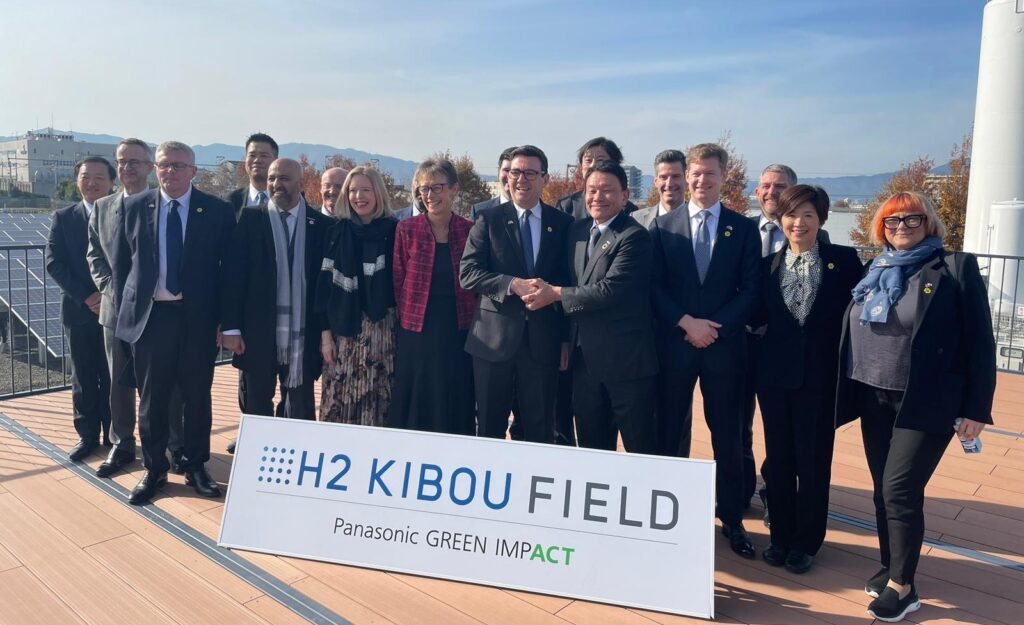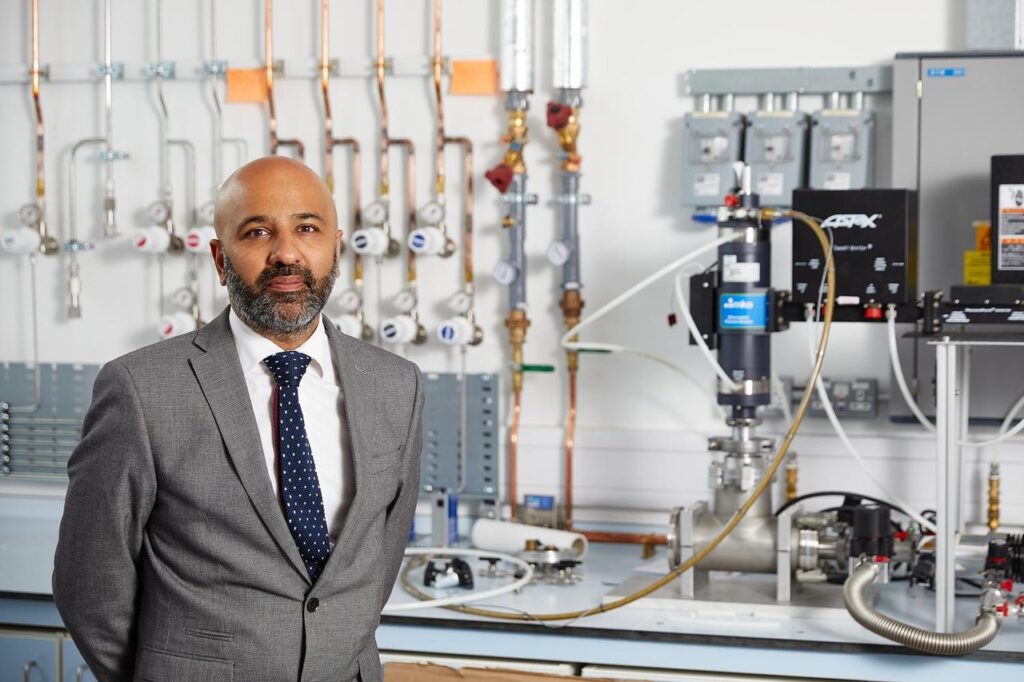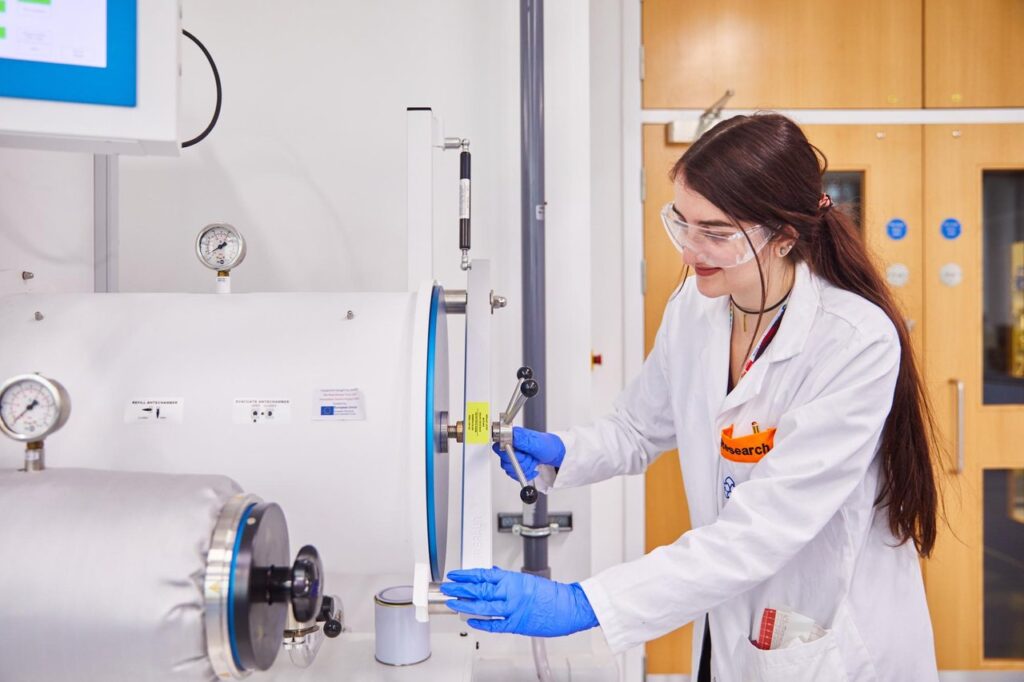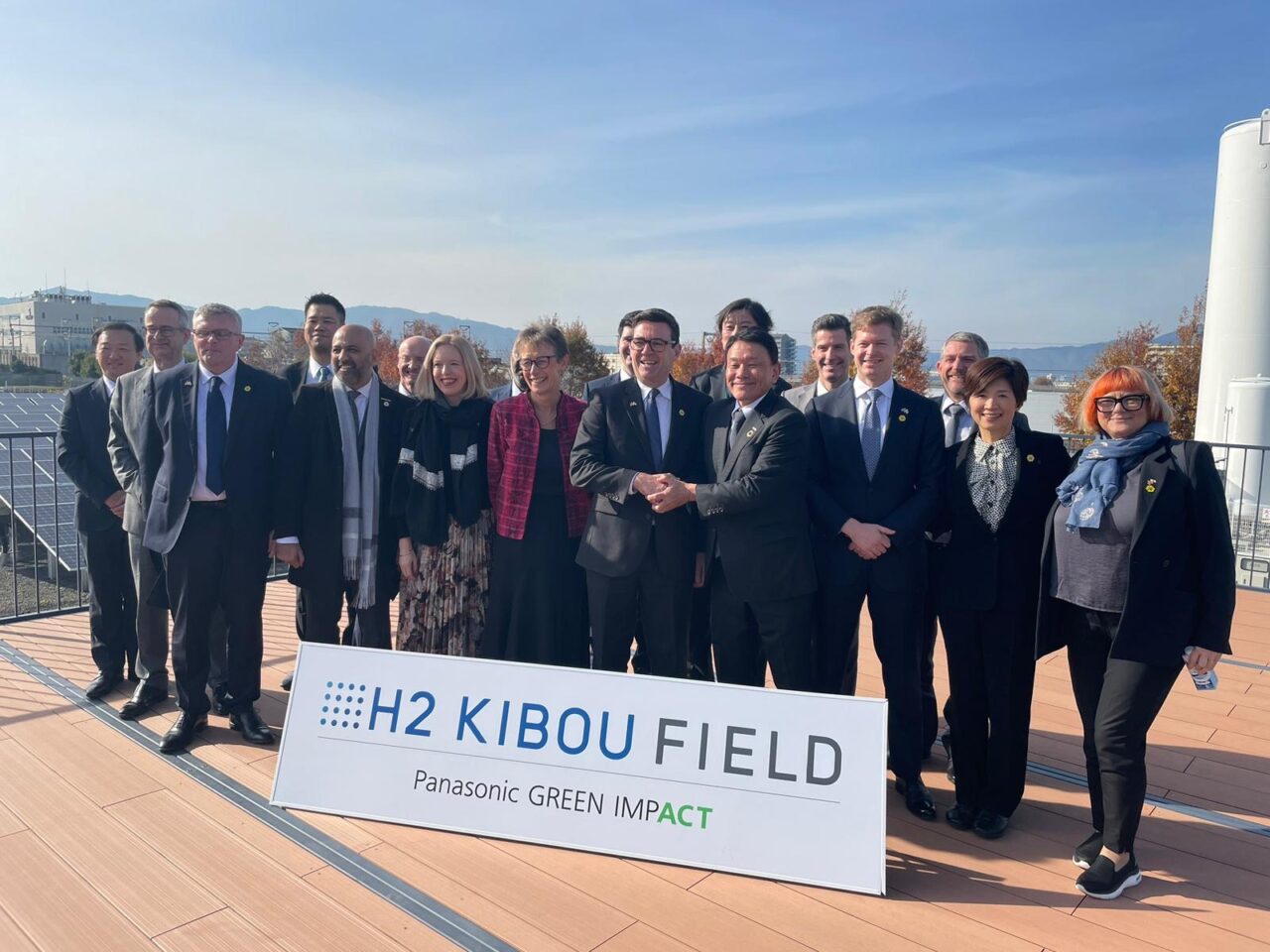Case Study: How Greater Manchester and Panasonic are harnessing green hydrogen
Greater Manchester is encouraged by Japan’s current roadmap to tackle the challenge of climate change and is working to build a bilateral exchange on environmental policy areas and net zero objectives.
Both regions have a shared commitment to driving forward innovative technologies that will contribute to the global reduction of CO2.
Japan’s commitments to cutting greenhouse gas emissions by 46% from 2013 levels by 2030 and achieving full carbon neutrality by 2050 offer valuable insights that can inform Greater Manchester’s own 2038 carbon neutrality target, while also allowing Japan to learn from the city region’s pioneering approaches.
Achieving Greater Manchester’s ambitious 2038 target requires significant innovation and change to the way energy is generated, distributed, and consumed. Greater Manchester is well-positioned for developing a decarbonised hydrogen market, possessing many of the necessary elements for establishing a hydrogen economy.
As such, in 2024, the Mayor of Greater Manchester signed an exploratory partnership agreement alongside representatives from Panasonic Corporation, SSE Energy Solutions, Electricity North West, Manchester Metropolitan University and Carlton Power, supported by MIDAS and Deloitte.
The agreement enables the exploration of opportunities to harness green hydrogen and Panasonic’s fuel cells to supply the site with 100 percent renewable electricity, supporting Greater Manchester’s (GM) ambition to be carbon neutral by 2038.

This initiative underscores the importance of collaboration across multiple stakeholders and demonstrates the vital role of Foreign Direct Investment in technology development and transfer.
Over the last year, the partnership has already strengthened research and innovation clusters in Greater Manchester by connecting people, ideas, and sectors.
Progress over last year
Through establishing key working groups, the partnership has already achieved the following key milestones:
- Developed key insights and carried out due diligence illustrating how a more flexible, forward-looking regional hydrogen plan can accelerate growth, boost productivity, drive the net zero transition and ensure equitable sharing of prosperity between the UK and Japan.
- Shortlisted 2 sites where in-depth feasibility scoping is taking place. and long listed a further 17.
- Identified new ways to create value with Panasonic supporting existing clusters of strength such as the Greater Manchester Electrochemical Hydrogen Cluster, whilst also reinforcing foundational elements that underpin long-term prosperity.
- Developed a model for a First of a Kind (FOAK) Hydrogen to Power (H2P) project in the UK supported by the partners, which can become a critical driver of shared prosperity.

Embracing emerging sectors and new technologies
Greater Manchester already has a dedicated Hydrogen Strategy which was built upon long-term partnerships with the support of discipline-specific experts from academia, industry, and government-funded research agencies.
Our partnership with Panasonic is helping to guide the revision of our regional Hydrogen strategy, and will help us develop a focus on internationalisation to be launched later in 2025; expanding the sector and our ambition.
By tapping into the wealth of expertise available in Greater Manchester through its Universities, businesses, and sector-based agencies, Panasonic has identified emerging markets for the “Panasonic HX”, a hydrogen-based energy solution and leveraged the partnership to create an opportunity to expand the UK’s renewable and technology industry.
The partnership has laid the groundwork, and has already developed a streamlined process through identifying a reduced number of steps for future installations across the UK.
By building UK and Japanese capability in the deployment of H2P solutions and enabling local supply chains of innovators and suppliers, this partnership is de-risking investment in UK manufacturing and scale-up for international companies like Panasonic.

Greater Manchester to become a UK Centre of Excellence
This partnership is also supporting the creation of a UK first Centre of Excellence to provide practical training for communities and students in world-leading renewable energy technological advancements; supporting Greater Manchester’s ambition to become a leading green skills city-region.
The Centre of Excellence will help equip Greater Manchester’s workforce with the skills required for a green future and support the expansion of renewable technologies across the region.
